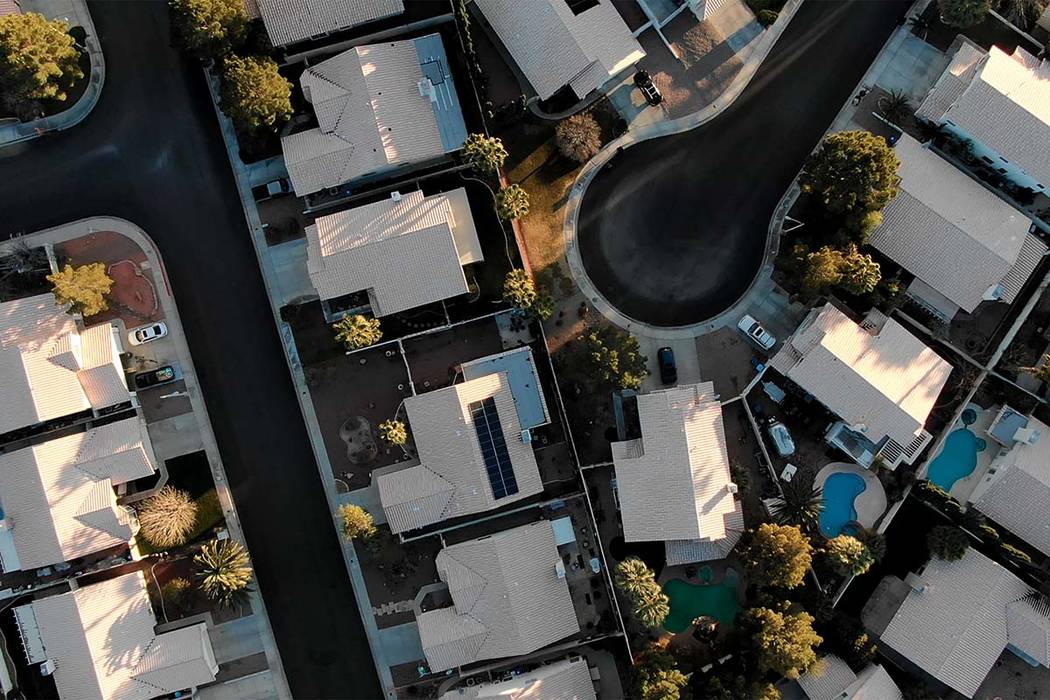Las Vegas’ hot housing market spooked home flipper in 2018

AUSTIN, Texas – Las Vegas’ housing market heated up last year with soaring prices and fast-selling homes.
It was such a frenzy that house flipper Brian Bair figured the market went to “crazy town,” so he racked up more deals elsewhere.
Bair is CEO of Offerpad, an Arizona startup that buys homes and sells quickly. Founded in 2015, it is active in about a dozen metro areas, including Phoenix, Dallas, Atlanta and Orlando, Florida, and has raised $975 million from investors and lenders.
Offerpad did not provide nationwide purchase totals to the Las Vegas Review-Journal but said it bought three times as many homes in the first half of 2019 compared to the same period last year.
If a home meets its criteria, the company makes a cash offer within 24 hours of receiving the property’s information through its website, and it tries to sell within 100 days of closing the purchase.
Profit margins are tight, but the business is based on fees and volume, not landing a big spread on each deal, according to Bair.
Bair sat down with the Review-Journal last week at the National Association of Real Estate Editors conference in Austin, Texas. He spoke about Las Vegas, his company, and why he doesn’t consider himself a flipper.
The interview has been edited for length and clarity.
Maybe we can start with the basics about Offerpad’s activity in Las Vegas. What is your monthly purchase and sales volume?
We’re probably transacting less than about 100 a month, buying and selling. It’s one of our smallest markets, but one of the reasons is at the end of last year, it got super super-hot and went into crazy town with some of the numbers that people were willing to pay for homes. With our model, we have to be very sensitive to that. We definitely didn’t get as aggressive in Vegas as others did. Overall I think we made the right decision because then it slowed down pretty quickly.
How does that volatility in Vegas, either up or down, compare to other cities you operate in?
Vegas is by far the most volatile that I’ve ever seen in real estate. It’s a great market — great homes, newer inventory — but it goes from hot to cold very quickly.
As you see it, what are the strengths and weaknesses of Las Vegas’ market?
The biggest strength is people love Vegas, they love to move there, people want to have second homes there, it has good job growth. The rub is kind of what I touched on before: It’s a very difficult market to predict.
Like other markets, price growth in Las Vegas has slowed considerably this year, sales volume has been down, and the inventory of listings has almost doubled from a year ago. How does all of that affect your business in Las Vegas?
One of the things we’re seeing is it’s harder for people to sell their homes, so our service is more of a solution than before, when things were escalating so quickly and there were so many investors and people trying to buy homes. We’re starting to see our activity pick up a little bit more in Las Vegas.
What’s your turnaround time on trying to sell a house?
Overall, across the portfolio – Vegas is normally quicker – but from the minute we buy it to the minute that we sell it, we’re under 100 days. There’s things we can control in that 100 days and there’s things that we can’t. One of the things we can control is our renovation. We want to get in and out of renovation in 15 days maximum. We want to get it on the market quickly.
Your company and your competitors Opendoor and Zillow have said they don’t consider themselves flippers, even though you’re buying and selling really fast. Just speaking for yourself, why don’t you consider yourself a house flipper?
I’ve had businesses that have flipped houses. When I hear flipper, what I think of is buy distressed homes, buy low, sell high. With this, why this model is completely different, is that you want to actually pay as much as you can for the home to buy more homes, and you make a little bit of a profit in there as you grow volume. When I was a flipper, for example, even at a 15 percent margin, people would be scratching their head saying, I can’t believe you’re a flipper, you’re only making 10-15 percent margins. This is a completely different world — 1-2 percent, maybe. On the outside, trust me, I get it: It looks like, Oh, well you’re buying and you’re selling quickly, that’s a flipper. But the concept overall is just different than that.
Contact Eli Segall at esegall@reviewjournal.com or 702-383-0342. Follow @eli_segall on Twitter.